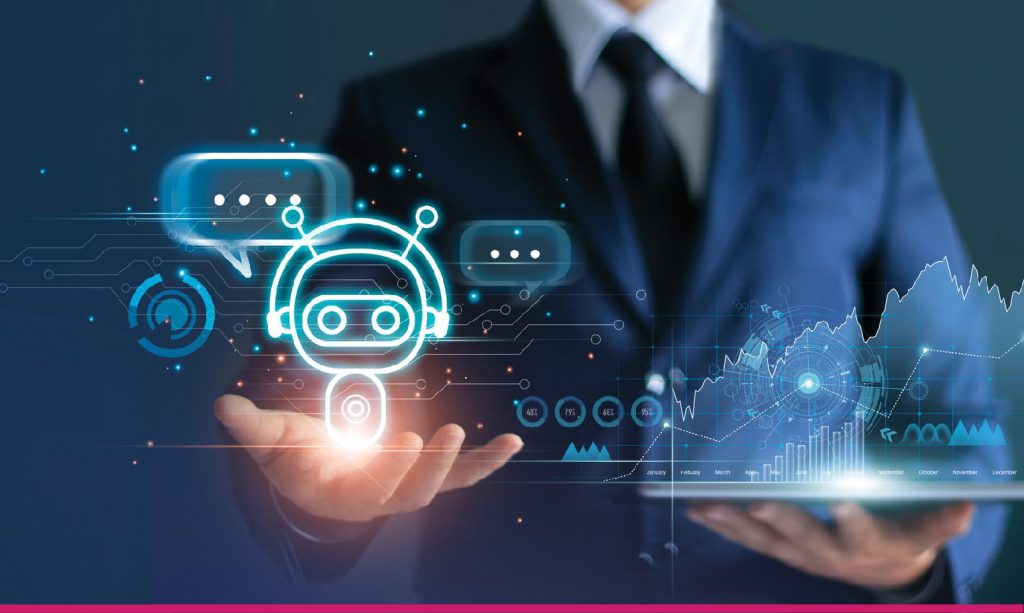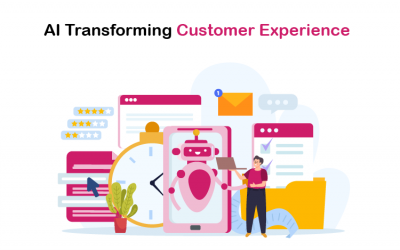Effects Of AI On Customer Experience

The effects of AI on customer experience have been profound and far-reaching. The integration of AI in customer experience has caused a significant shift in the way businesses to interact with their clients. Firstly, AI technology has brought about a number of changes that have improved customer satisfaction.
Additionally, it has increased efficiency and reduced costs. Furthermore, the effects of AI on customer experience are far-reaching and have transformed the traditional customer service model.
Artificial Intelligence is a profound use technology for everyone today. It is carelessly spread across headlines, Twitter, and boardrooms around the world. Even CTOs themselves sometimes struggle to distinguish artificial intelligence from machine learning (ML), which has been commonplace in the tech industry for years.
No wonder everyone is talking about AI today. The word AI has relevance – startups know that they are much more likely to get funding if AI is written into their proposals. Artificial intelligence is creating humanoid images from our favorite sci-fi movies from the 80s and 90s and fears that robots will take our jobs.
In the coming years, AI will eliminate some jobs, accelerating companies’ success and allowing people to be more creative.
Revolutionizing Customer Experience: The Impact of AI Innovations

But beyond the buzzword, we are on the brink of a new revolution (call it what you will: digital revolution, robot revolution, intelligence revolution – we’ve heard it all).
Technology such as AI and ML are driving this change in our working style. It’s imperative to ensure that companies don’t fall behind, since competitors can offer better products or services by leveraging AI.
AI is truly the best in intelligence, yes, but it also offers convenience, and simplicity and saves time. Building Amazon Alexa and Netflix into your living room has already impacted most industries. And of course, customer experience is a great candidate to benefit from AI innovations. This is an area that needs customization and some companies are already upgrading their CX services to work with AI.
The benefits you can achieve today are:
1. Promote Online Self-Service – Using a combination of ML and Natural Language Processing (NLP) and creating a feature called chatbots can help online customers find answers to simple questions.
2. More personalized content – Deep learning models can identify common words and phrases related to specific issues in support tickets and provide timely recommendations to optimize help center content.
3. More efficient customer support agents – Agents can quickly resolve customer issues using a similar method to content personalization.
4. Data-driven recommendations and predictions – Data captured from customer service interactions can be used to improve future interactions. Using data from past support tickets, an AI model can predict positive or negative CX outcomes and make suggestions to improve interactions in real-time.
5. Free up business time for innovation elsewhere – Automated ticketing decisions save companies time, allowing their employees to innovate elsewhere.
What about the future of CRM?

We are only at the beginning of this revolution and AI will be a key part of CX going forward. By 2020, 70% of customer interactions will involve AI tools like chatbots and ML, and our homes are already equipped with technology to prepare customers for this shift.
While we are all used to calling an inanimate object across the room to get the news for the day, set an alarm, or play our favorite song, this enhanced experience should improve our lives in every way. Our pockets and homes are becoming more and more advanced when it comes to devices. Technology will continue to evolve. It will only benefit CX.
In the near future, it is likely that you will no longer have to suffer through repetitive music on hold while waiting to speak with an agent to resolve your question. With advanced AI chatbots, customers will self-serve their queries to the right expert representative, while AI can eliminate frustrating wait times.
As customization improves, conversations themselves become more intuitive. Customization improves conversational flow. People rescheduled trips right, left, and center during the pandemic. Queues to speak with travel agents were so long that many companies had to cut their phone lines. Intelligence and trust in your data could have resolved most of these frustrations.
But that’s not possible if you don’t know your customer. In the near future, companies will be able to truly understand their customers and serve them even more effectively with the help of AI tools and tactics.
Effects of AI on customer experience In Recent Years…..
The effects of AI on customer experience have been substantial in recent years. All this intelligent personalization and insight about your customers is based on data. For your AI model to properly learn from and predict future behavior, you must collect customer data.
Utilize loyalty programs, digital receipts, and content-based newsletters to encourage customers to provide their information while adhering to GDPR regulations.
Utilize an innovative CRM system to combine in-store and online data to create a true picture of your customers. This quality and accuracy of data will allow your business to embrace and thrive in the next revolution.
Adapting early to AI and machine learning will have a huge impact on business models in the future.
In conclusion, the effects of AI on customer experience cannot be overstated. AI has already transformed the way companies interact with their customers and will continue to drive innovation in the industry.
Recent Posts
- How People Analytics Can Utilize Data to Drive Business Results
- The Role of AI in Enhancing Employee Feedback Systems
- How Purpose-Built AI Can Help You Build A Great Customer Experience
- Why is Customer Sentiment Analysis Crucial to Your Business?
- Customer Experience Statistics You Need To Know for 2025 | CX Statistics 2024



